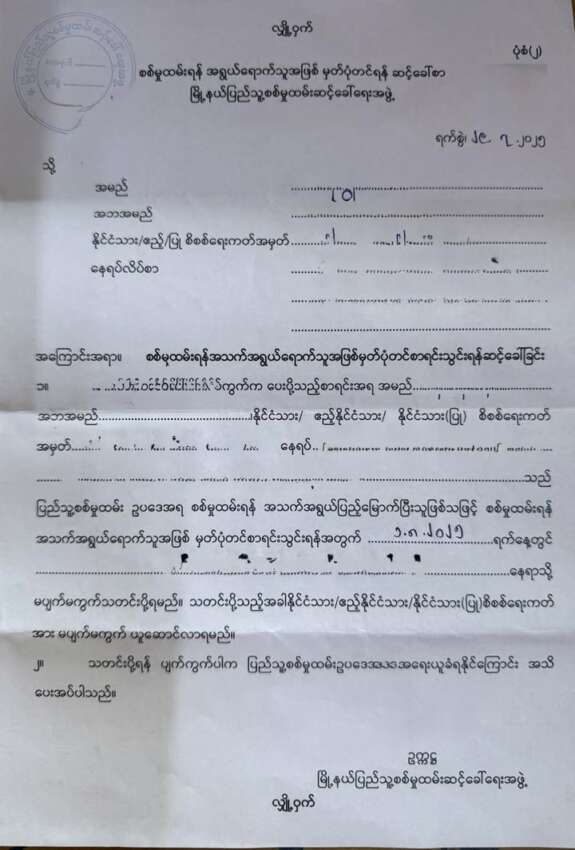
In Yangon, military recruitment processes have been designated as classified military information starting from the 16th recruitment batch, with strict instructions issued to township-level public military recruitment committees not to disclose any information to the public. The previously transparent recruitment process has now become entirely secretive, with registration, conscription notices, and collection of personal information being conducted in strict confidentiality. This shift in approach represents a significant change from previous practices where recruitment activities were carried out openly.
The Central Military Recruitment Committee has mandated this secretive approach after observing that young people tend to flee when recruitment activities are conducted openly. All aspects of the military recruitment process have been classified as military secrets, with warnings that any information leaks will be prosecuted under the Law on Protection of Military Secrets. The military council’s recruitment committees are now operating under heightened secrecy, with all communications and documentation marked as classified.
The military council enacted the Law on Protection of Military Secrets on July 28, which stipulates that soldiers, police, militia members, and civilians can face death sentences or life imprisonment for leaking military secrets. These classified military matters include military strategies, training activities, information about military vessels, aircraft, vehicles, machinery, weapons and ammunition, military equipment, related technologies, procedures, manufacturing and installation techniques, and other military-related information. This new classification of recruitment activities as military secrets represents a significant escalation in the military’s efforts to control information and enforce conscription while preventing resistance to their recruitment efforts.



